If you’re using Midjourney, you may know the struggle of making consistent characters.
But here’s the Good News!! Midjourney has finally released essentially the most anticipated feature called Character Reference.
Midjourney’s recent Character Reference feature allows users to create consistent characters without distortions by matching a reference image, just like the Style Reference feature but specializing in character likeness as a substitute of fashion.
So, we now have tried the Character Reference and generated a variety of consistent images with Midjourney. Excited to learn methods to create consistent images in Midjourney?
Let’s start!
What’s The Latest Character Reference Feature in Midjourney
The Character Reference feature works similarly to the present Style Reference feature, but as a substitute of specializing in matching a selected artistic style, it prioritizes the character’s appearance.
By uploading a reference image and using the --cref URL command followed by the image URL, you possibly can guide Midjourney to generate characters that closely resemble the provided reference.
You can adjust the strength of the reference using the --cw command, with values starting from 0 to 100. At the default strength of 100, Midjourney will consider the character’s face, hair, and clothing when generating the image.
Check out this image below. See how consistent that is from every angle?
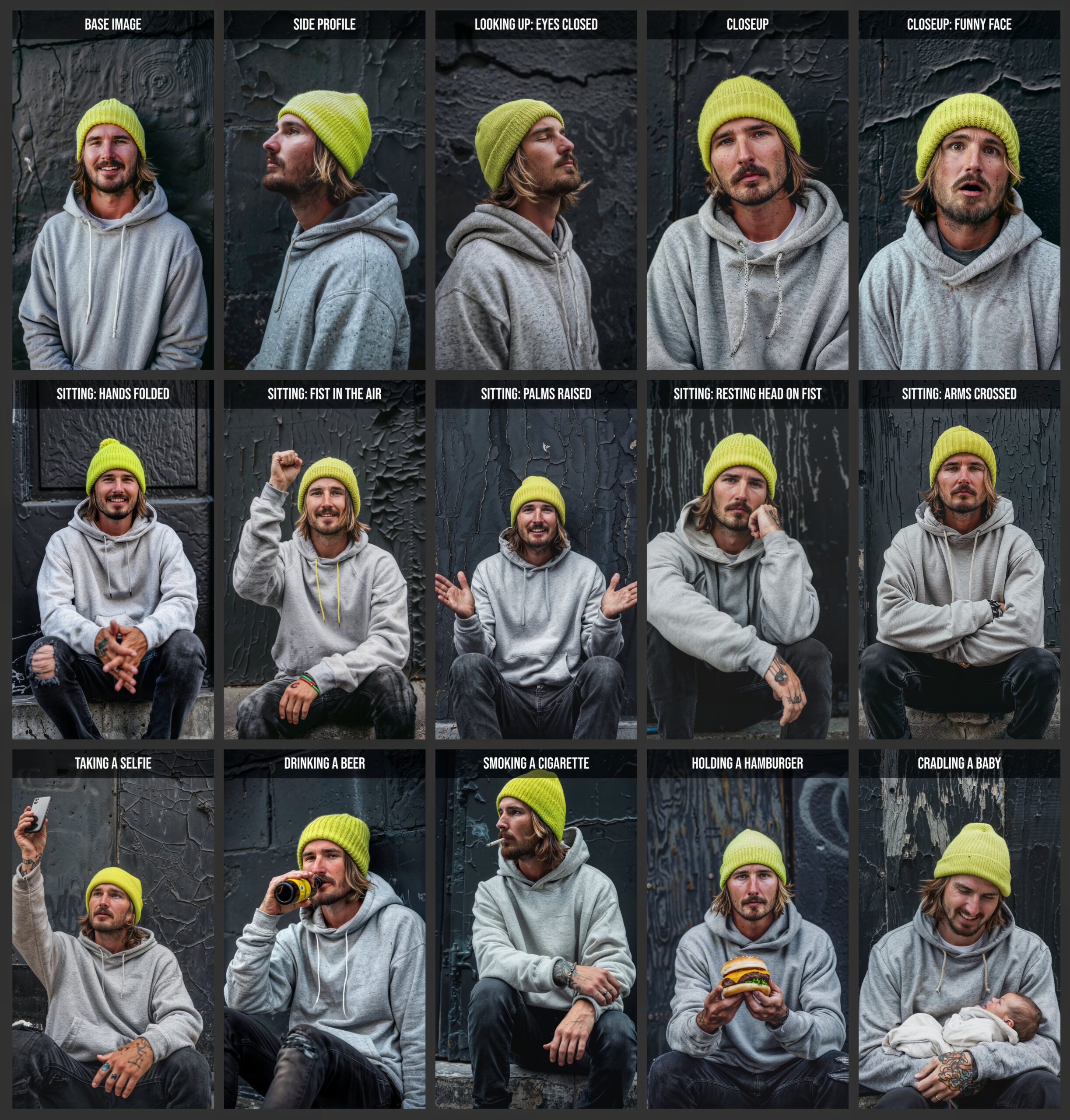
Prompt Used👇
Base Prompt:
Photo type: street photography portrait, extreme closeup, subject: 30 12 months old man, jubilant expression, tan skin, dirty blonde hair, beard stubble, wearing: grey acid washed oversized hoodie, lime green beanie, subject focus: sharp focus, environment: set against a black concrete wall, texture: artfully cracked concrete, image type: 35mm --ar 9:16
CREF Prompt:
Photo type: street photography portrait, closeup, subject: 30 12 months old man, sitting on a curb, comfortable pose, extending his arm upwards, taking a selfie with an iphone, looking upwards on the phone, dirty blonde hair, beard stubble, wearing: grey acid washed oversized hoodie, black jeans, lime green beanie, subject focus: sharp focus, mid ground, environment: set against a black concrete wall, texture: artfully cracked concrete, image type: 35mm --ar 9:16 --cref {image link} --cw 90
The better part is if you happen to’re a professional user, you possibly can take the Character Reference feature even further by mixing information from multiple images.
By providing multiple URLs separated by spaces after the --cref command, you possibly can create unique character mixtures, just like using multiple image or style prompts.
But why this feature is so exciting? Here are a number of the reasons that we expect make Midjourney a a lot better alternative now in comparison with other AI image generators:
As we now have covered what the Character Reference feature is and what it may well do, let’s now see a step-by-step process on how you possibly can create consistent character images with Midjourney.
How To Create Consistent Characters in Midjourney
Now, just follow the below steps to simply create consistent characters, AI influencers, and more using the Character Reference feature in Midjourney:
Step 1: Create a Base Image in Midjourney
First, as Midjourney announcement documentation suggests our first step is to create a base image.
Let’s create one using this prompt:
/Imageine prompt: Capture a highly realistic portrait of young spanish american women in a garden, aged 27 years old, showcasing graceful and delightful features, the topic must be captured with [happy emotions], within the style harking back to Elliott Erwitt, Emphasize details like clothes, real skin, eye color, eye contact, using a [14mm] lens, ensuring a [happy cheerful] mood with [soft lighting style], with color grading akin to [vibrant], --no watermark, deformed iris, deformed pupils, semi-realistic, cgi, 3d, render, sketch, cartoon, drawing, anime, digital art, text, cropped, out of frame, worst quality, low quality, blur, two hands, plastic, fake, uncanny valley, disfigured, deformed, bad anatomy, --stylize 1000 --ar 3:4 --v 6.0
This prompt generated the bottom image given below that we’ll use as a reference to create consistent character variations:
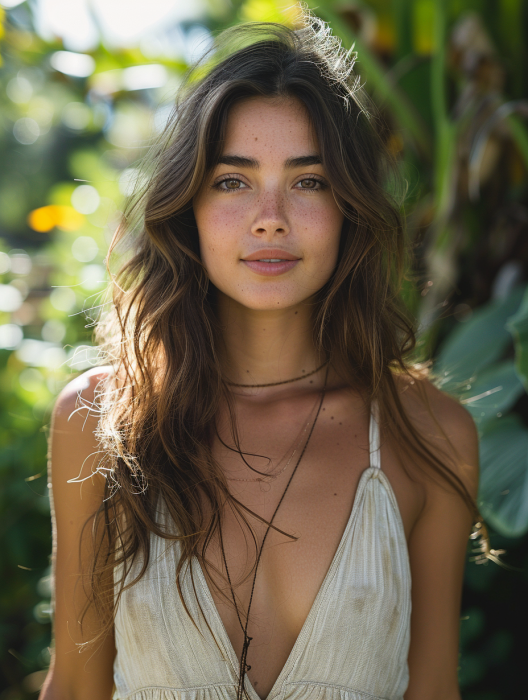
Step 2: Using Character Reference Parameter
To use your character consistently in Midjourney, start by copying the URL of your character’s base image. If you don’t know methods to use reference image in Midjourney, check this guide.
Then, write a brand new prompt for the character and add --cref followed by the image URL at the tip of your prompt.
If you would like to control how much Midjourney should match the features of your base character image, you possibly can optionally use --cw (character weight) and a price between 0-100. The next value (e.g., --cw 100) will closely match the features, while a lower value (e.g., --cw 0) will allow for more variation, reminiscent of changing hair color or clothes.
Here’s an example of how your prompt might look:
[Your Prompt] --cref [Image URL] --cw [0-100]
For example, here’s the prompt we used to generate a totally different scene for our character while keeping their appearance consistent:
/imagine prompt highly realistic portrait of young spanish american women reading a book by a comfortable fireplace, within the style harking back to Elliott Erwitt, Emphasize details like clothes, real skin, eye color, eye contact, using a [14mm] lens, --cref https://s.mj.run/0_Gs4amOysc --cw 100 --v 6.0
Here’s the output generated by Midjourney:
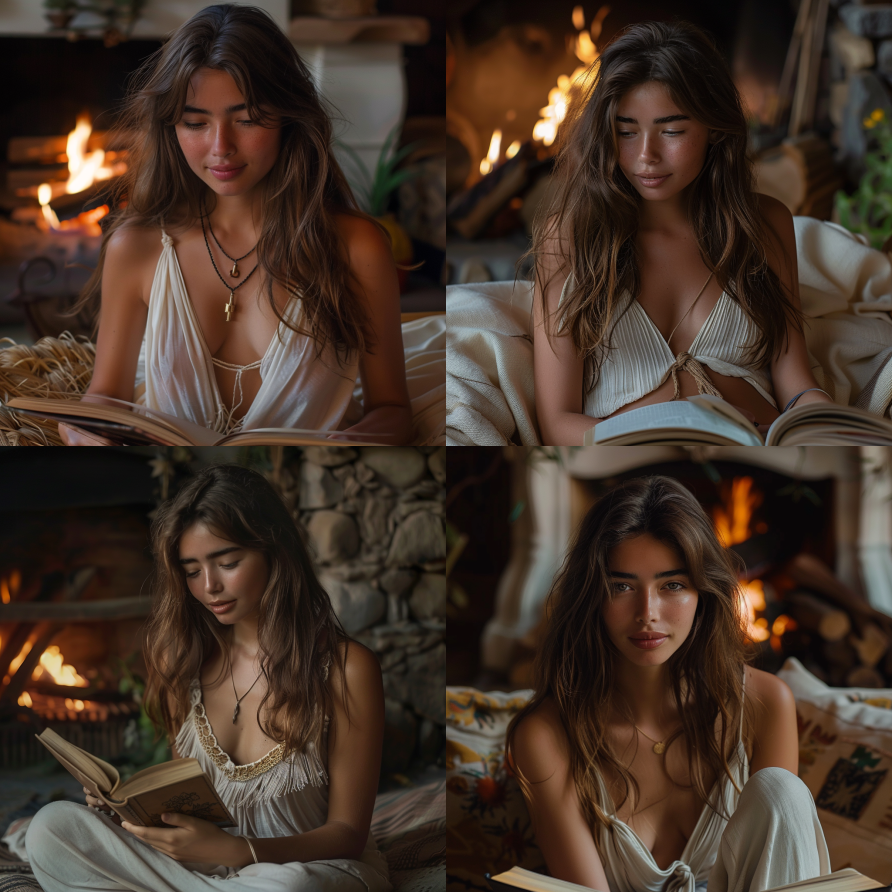
And that’s it. Using the above parameters you possibly can easily use this latest Character reference feature in Midjourney to create consistent characters.
Though this feature will provide help to generate very consistent characters, it’s vital to notice that it’s still in beta. So, the precision of this feature is proscribed, because it won’t copy exact dimples, freckles, cheeks, or t-shirt logos.
Next, Play with The Character Weight Parameter
The character weight parameter (--cw) in Midjourney lets you control the strength of the character reference image’s influence on the generated output.
Despite its name, “weight” doesn’t seek advice from the character’s physical weight; as a substitute, it determines how closely the generated image should match the reference image.
By default, if you happen to don’t specify a personality weight, Midjourney will use the utmost strength of 100.
At –cw 100, the AI tries to capture and reproduce as many details from the reference image as possible, including specific clothing items just like the dress of our reference image within the previous examples.
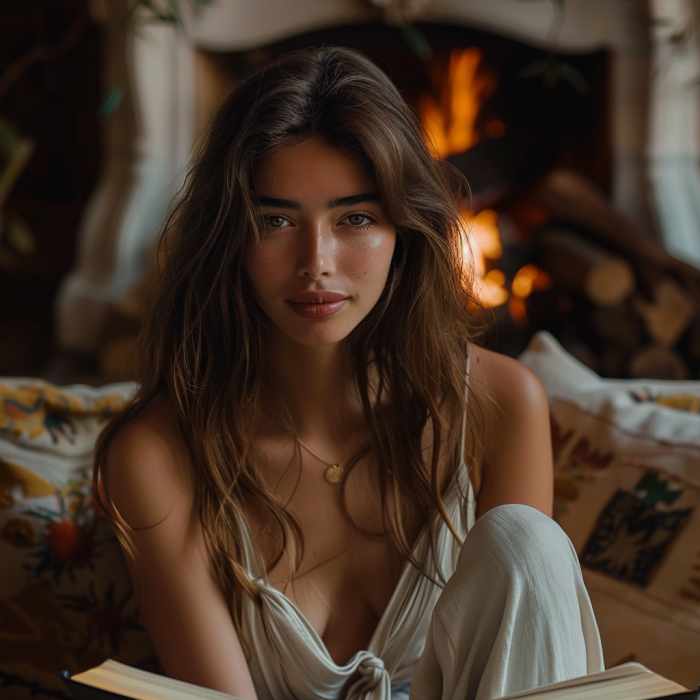
On the opposite hand, while you set the character weight to 0 (--cw 0), Midjourney primarily focuses on the character’s face, supplying you with more flexibility to vary other facets like clothes and hairstyles.
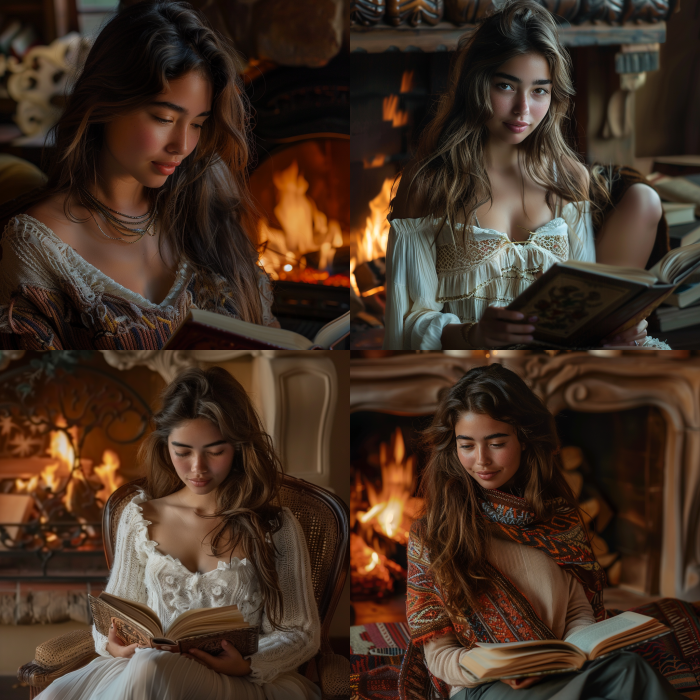
To higher understand how the character weight affects the generated images, let’s experiment with different values: 80, 40, 25, and 10.
As we decrease the character’s weight, we’ll observe how the generated images step by step deviate from the reference image regarding clothing and other details while still preserving the character’s facial expression.
Changing Character Weight
For this instance, we are going to take the below reference image of an Asian women to see more clearly how Midjourney preserves features.
New Base Image:
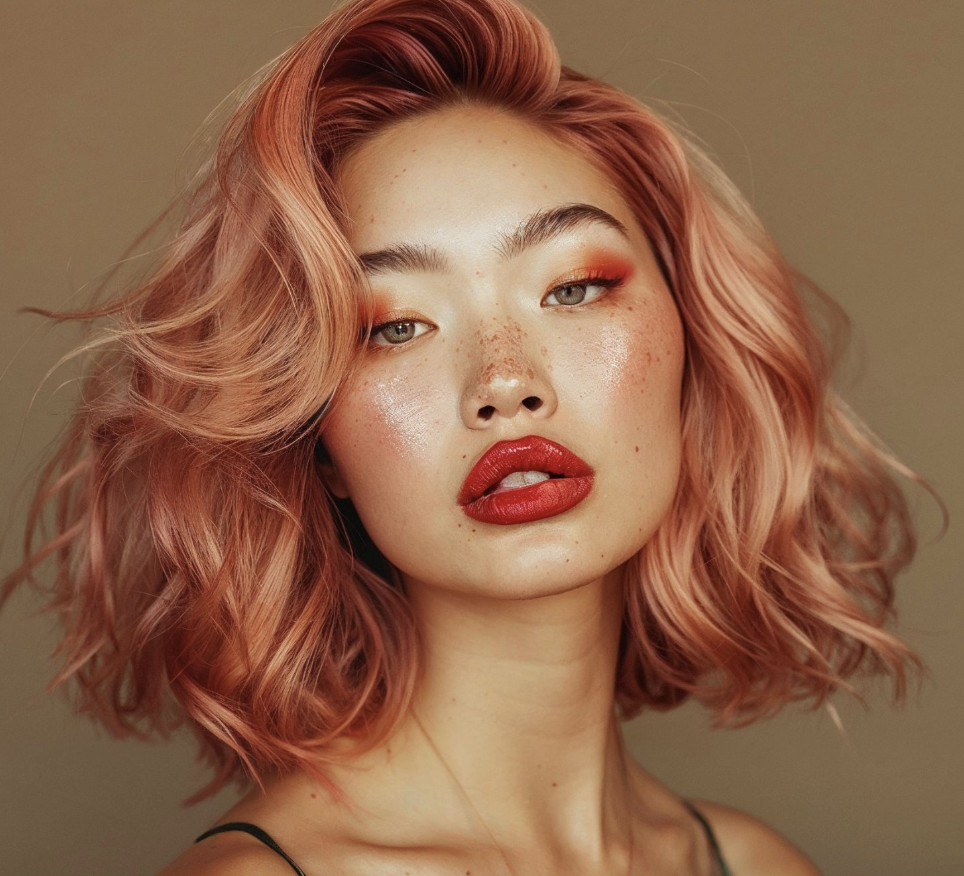
Now, let’s change the character weight to 80 (--cw 80) and see what we get:
/imagine prompt an individual making pasta within the kitchen on a stupendous sunday morning --cref https://s.mj.run/5M4lDMWMkPw --cw 80 --v 6.0
Output:
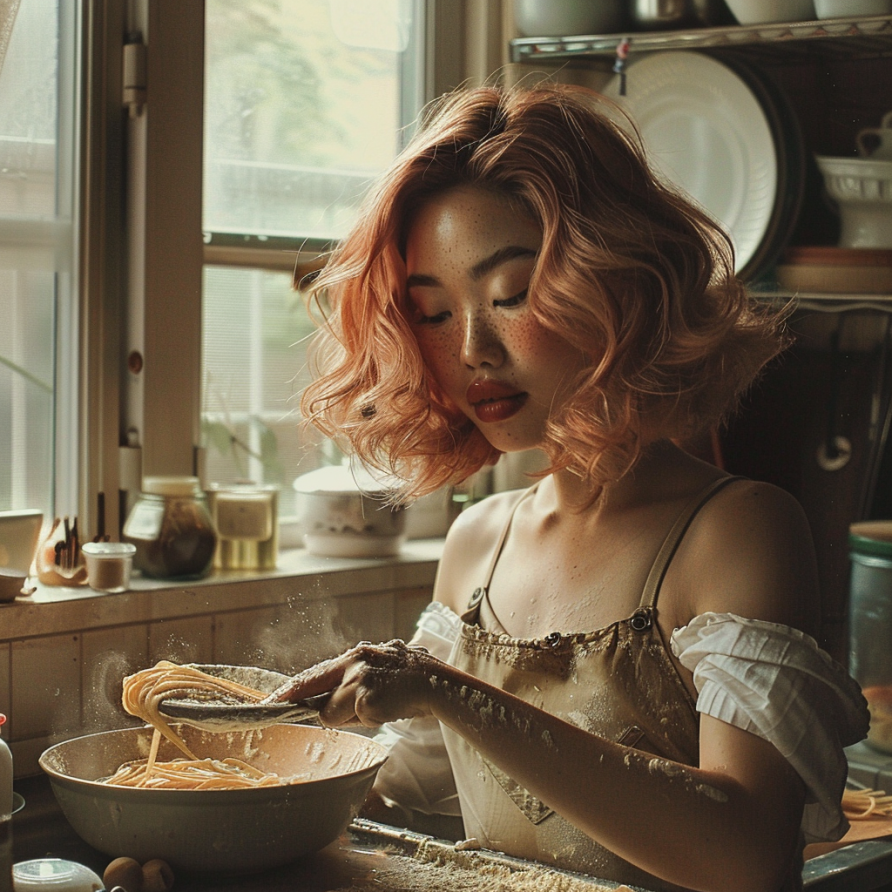
Now, within the above image, it’s noticeable that the outfit has modified; the hair color is a bit dull, and the freckles are more outstanding.
Let’s change the character weight to 40 (--cw 40):
/imagine prompt an individual making pasta within the kitchen on a stupendous sunday morning --cref https://s.mj.run/5M4lDMWMkPw --cw 40 --v 6.0
Output:
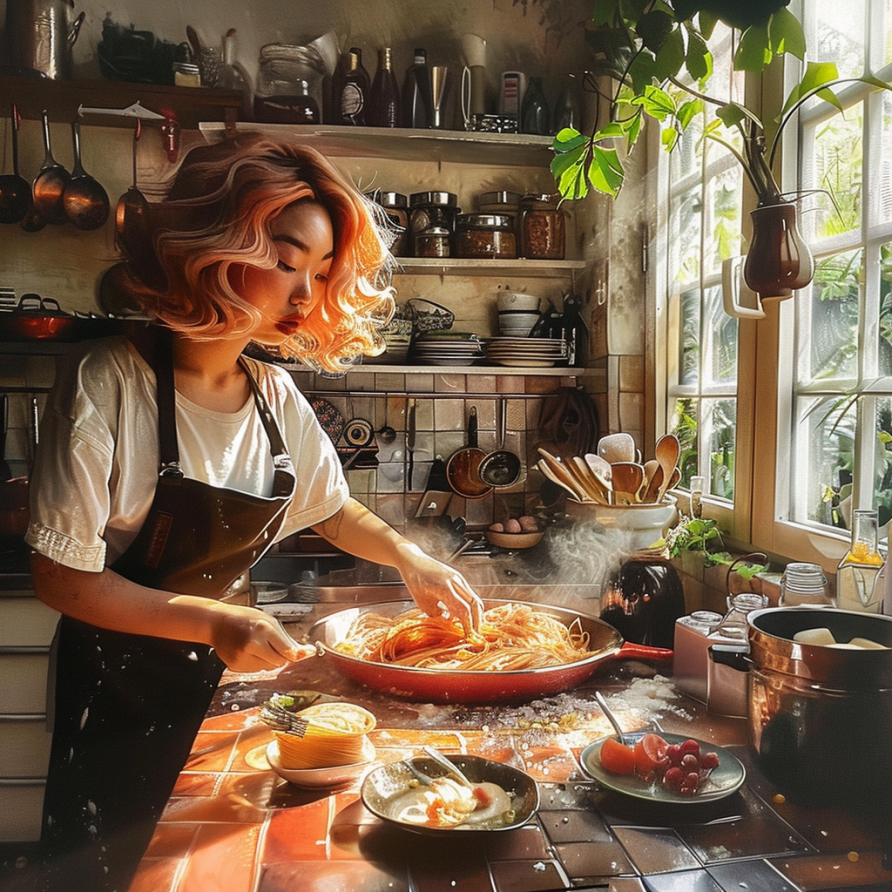
Using the character weight of 40 within the above image removed the freckles, yet it kept other vital features from our reference image.
Let’s change the character weight to 25 (--cw 25):
/imagine prompt an individual making pasta within the kitchen on a stupendous sunday morning --cref https://s.mj.run/5M4lDMWMkPw --cw 25 --v 6.0
Output:
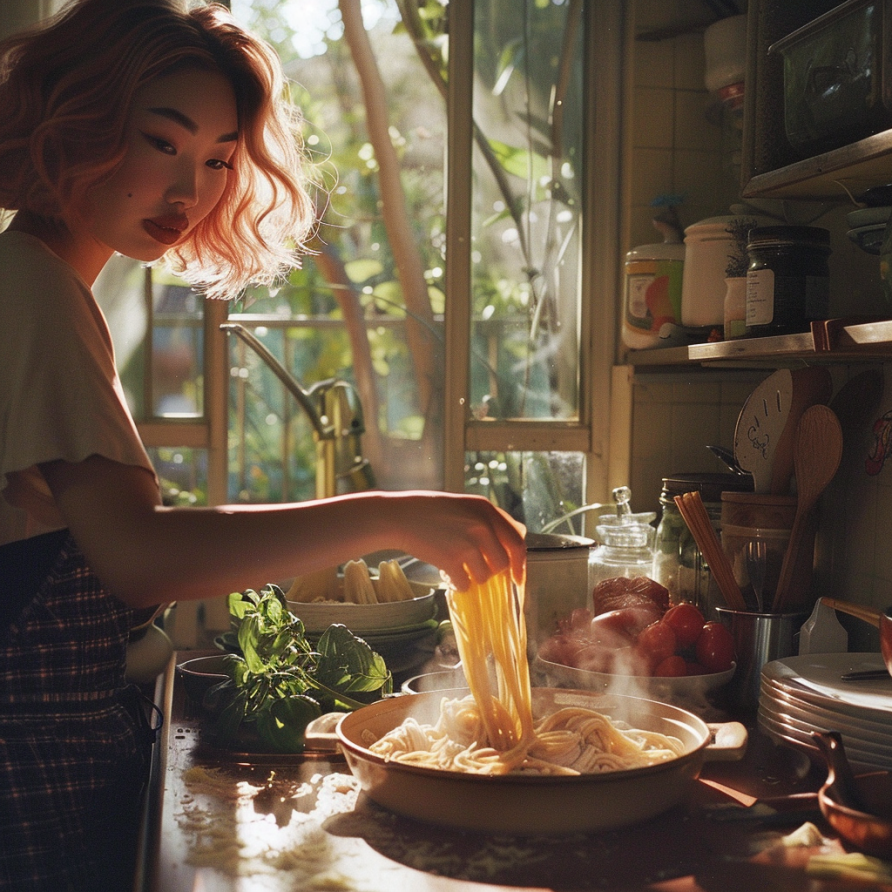
Now, when using a personality weight of 25, we now have lost more features, and even the hair colours are modified. This means with low character weight or –cw, you possibly can focus only on face features and keep them consistent fairly than the entire character.
Finally, let’s try with the character weight to 10 (--cw 10):
/imagine prompt an individual making pasta within the kitchen on a stupendous sunday morning --cref https://s.mj.run/5M4lDMWMkPw --cw 10 --v 6.0
Output:
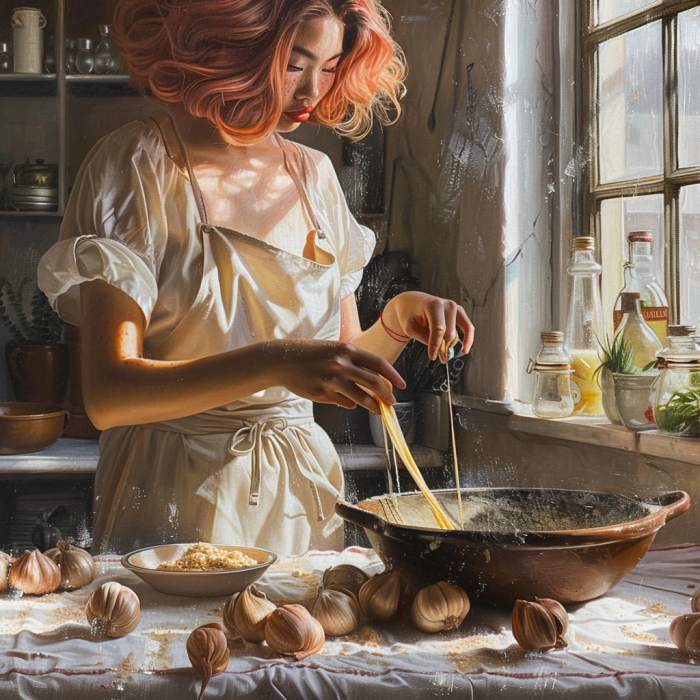
Well, using a personality weight of 10 is interesting. We gained some hair color and other facial expression from our reference image. As we said, it’s a hit-and-miss as Character Reference remains to be under testing.
Using Multiple Character Reference Images in Midjourney
Multiple --cref URLs might be utilized in a single prompt to strengthen your character’s desired characteristics.
Add an area between each URL, using the –cref tag just once.
Here’s how you possibly can give multiple character reference images:
Template: [Prompt] --cref [URL1] [URL2] --cw 0-100
For example, let’s use two base images and see what happens. For this instance, we are going to use these two base images and generate a a lot better character:
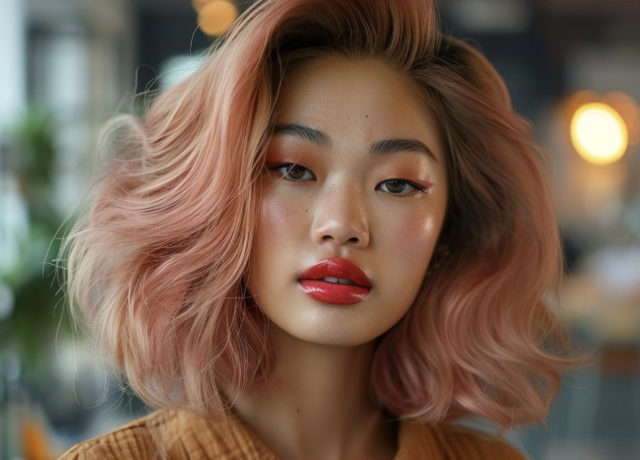

Let’s add the prompt and see what happens.
/imagine prompt a lady wearing cat iron man costume with iron helmet open --cref https://s.mj.run/5M4lDMWMkPw https://s.mj.run/EDdsCskzhdQ --cw 100 --v 6.0
Output:
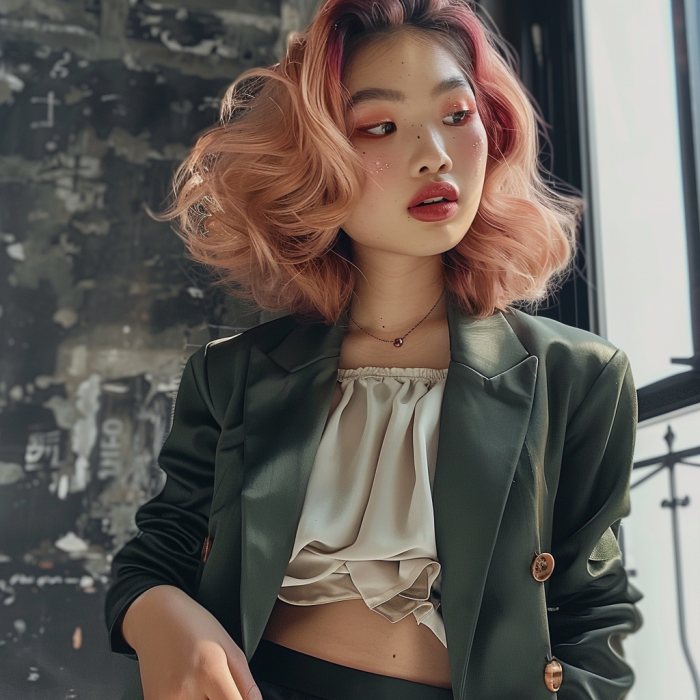
This gives us a a lot better output as our more reference images increase the prospect of getting more consistent images.
You may even use this system with Niji 6 too. Remember, Cref just isn’t compatible with Niji 5 or below.
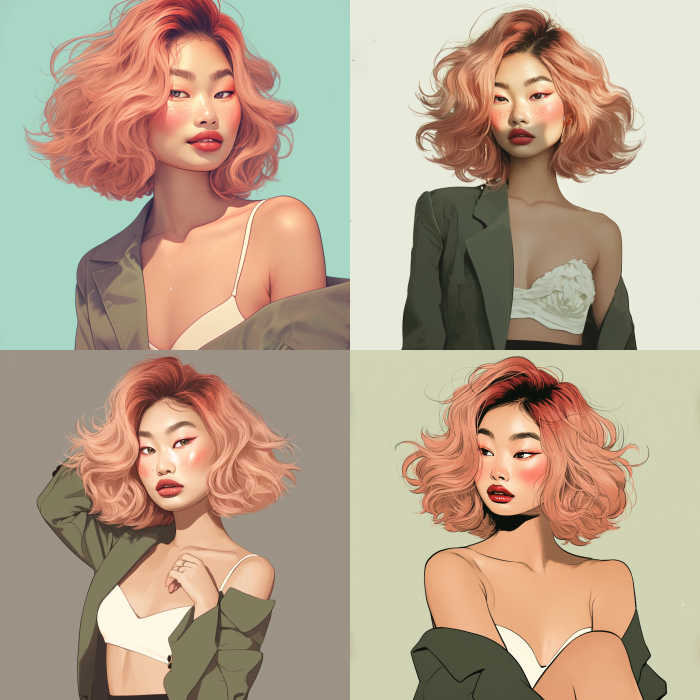
Using Stylize with Character Reference (Advanced)
Using Character Reference (cref) and Style Reference (sref) together is a robust combination that may significantly alter your character’s appearance.
By applying a method reference, you possibly can change the character’s color palette, clothing style, and overall aesthetic while maintaining their consistent facial expression.
For example, using a Victorian-era style reference image can transform your character right into a period-appropriate version of themselves, with historically accurate clothing and colours. This technique allows for creative exploration and adds versatility to your character designs.
Let us explain this with an example.
Take the identical base image that we used earlier. Now, what if you would like to apply a Charles Burton Barber style to that image like below?
Charles Burton Barber style:
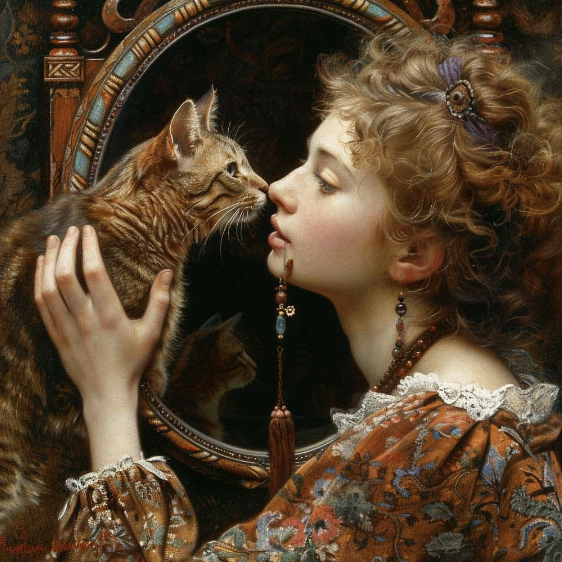
You can try this using this prompt template:
Template: [Prompt] --cref [URL] --sref [style URL] — cw 100
Using the above prompt, we are going to give you the chance to generate a picture just like the one below:
/imagine prompt a lady wearing a dark green blazer white shirt and black skirt, --cref https://s.mj.run/5M4lDMWMkPw --sref https://s.mj.run/lEOGZt590-Y --cw 100 --v 6.0
Output:
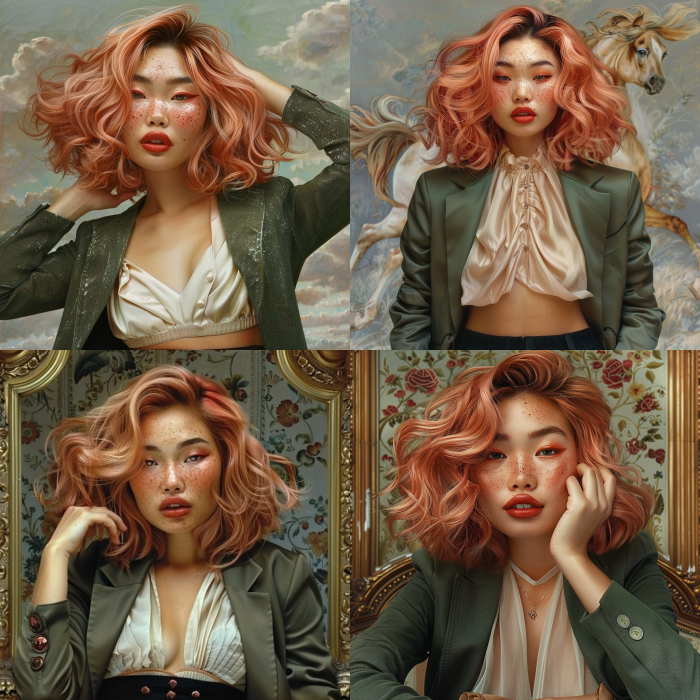
That’s The End!
And there you may have it!
Midjourney’s Character Reference feature is an incredibly powerful tool that lets you create consistent characters across multiple images while exploring variations and styles.
So, what are you waiting for? Go to Midjourney and begin experimenting with the Character Reference feature today!
Don’t forget to envision out our other blog posts for more suggestions, and tricks:
This article was originally published at www.greataiprompts.com





